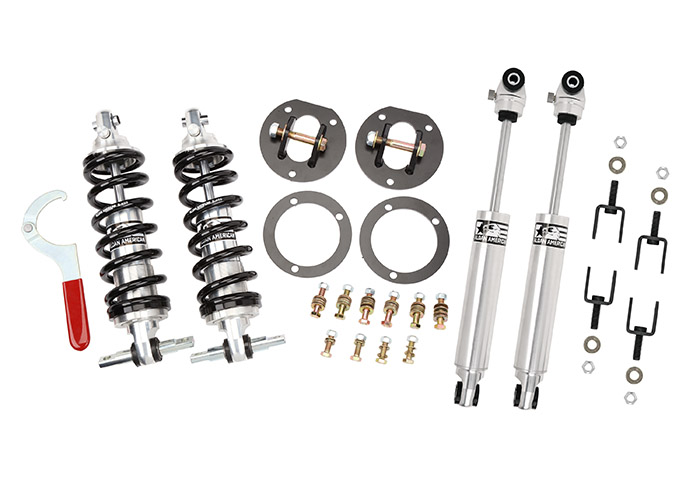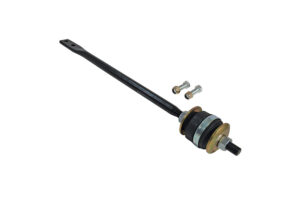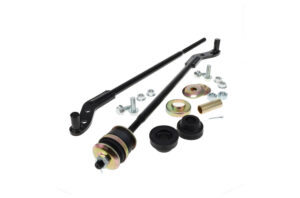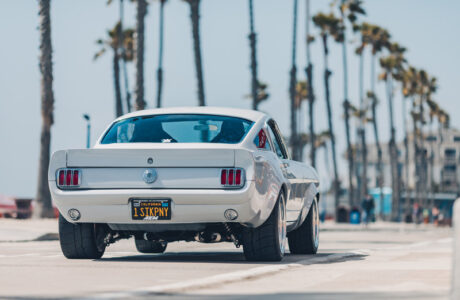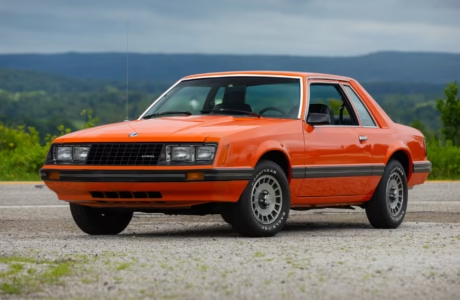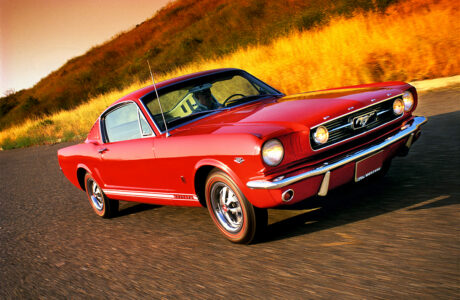Upgrading the 1964-1973 Ford Mustang for Optimal Handling
Since Ford introduced the Mustang in 1964, it has become an American icon, symbolizing power, design, and the spirit of freedom. However, while it offered impressive horsepower, especially in later models, the early Mustangs lacked modern-day handling capabilities.
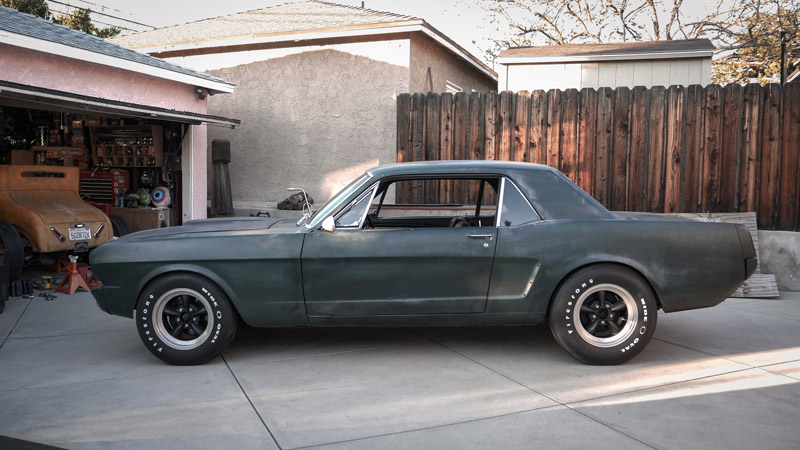
Thankfully, a series of reasonable upgrades can rejuvenate your classic Mustang, allowing it to compete with agility and finesse on the street or track. Drawing on the expertise of specialists like DIY Ford, this guide dives into the intricacies of improving the first-gen Mustang’s handling capabilities.
Lets Get Started
Before diving into general suspension and chassis upgrades, we walk through a real-world coilover install on a 1968 Mustang GT to show how modern components can transform classic muscle.
Coilover Upgrade on Nando’s ’68 GT Mustang


Removing the OEM shocks and springs:



Installing the Aldan Upper Mount & Reinforcement Ring
Position, drill, and align the new hardware for a stronger, more secure shock tower setup.



Installing the Aldan Coilover
Replace the stock mount, secure with supplied hardware, set rebound, and torque to spec for optimal performance.


Now that we’ve walked through a real-world coilover install, let’s take a step back and look at the bigger picture. Here’s what to consider when upgrading the chassis and suspension on any 1964–1973 Mustang.
Chassis and Frame: Reinforcing the Backbone
The 1964–1973 Mustang’s chassis and frame form its foundation and often need careful attention, especially considering the wear and tear they might have undergone over the past 40-50 years. We suggest checking the underbody, especially the front and rear frame rails that support the car’s weight, which is crucial.
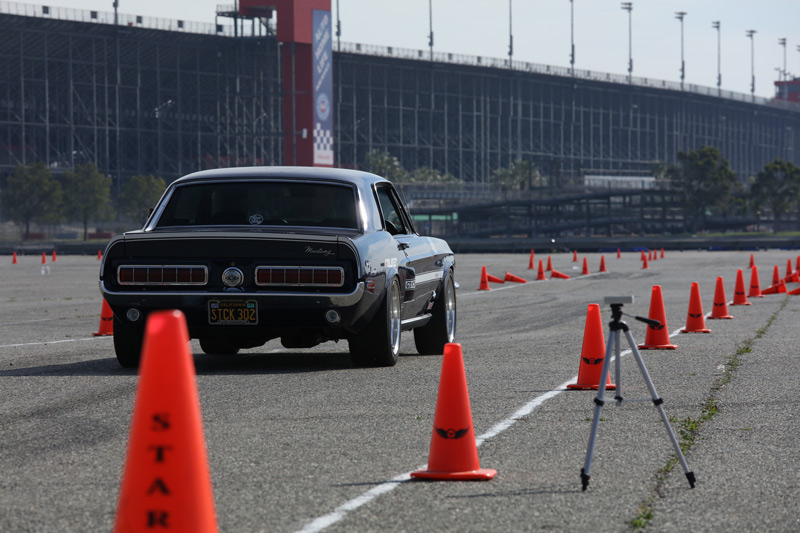
Rust or structural damage can signal more profound problems. While you can repair small areas by welding in replacement panels, you should consider consulting an automotive restoration specialist for more complex structural challenges.
Chassis Rigidity: The Role of Subframe Connectors
Beneath the stylish first-gen Ford Mustang’s exterior lies a frame that dramatically benefits from structural reinforcements. This is particularly true for those intent on bringing the Mustang’s handling up to contemporary standards.
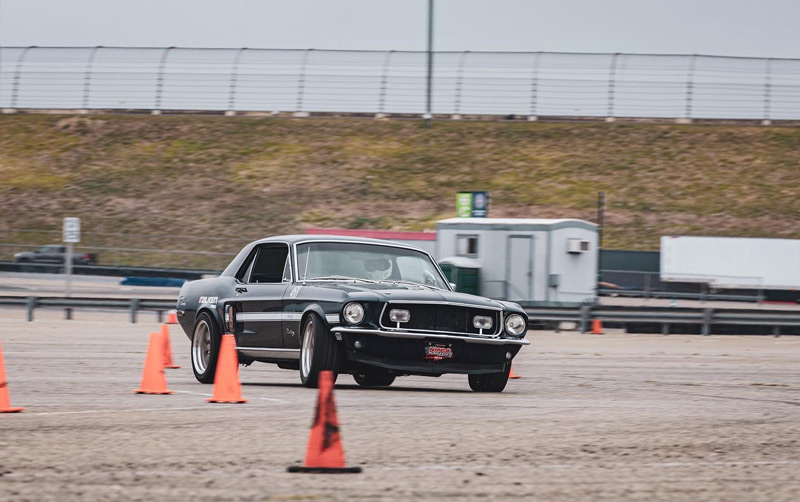
Among the most effective enhancements is a Performance Online subframe connector, which bridges the gap between the front and rear subframes of the first-gen Mustang, drastically reducing chassis flex.
Scott Drake also offers Convertible Torque Boxes. Ford developed these to stiffen the 1964-1973 convertible’s chassis, and they can be installed on any first-gen Mustang. While a more significant undertaking than subframe connectors, Torque Boxes can add valuable strength to the platform.
In addition, an Export Brace is designed to link the shock towers to the firewall. These braces counteract metal fatigue, chassis cracking, and frame twisting.
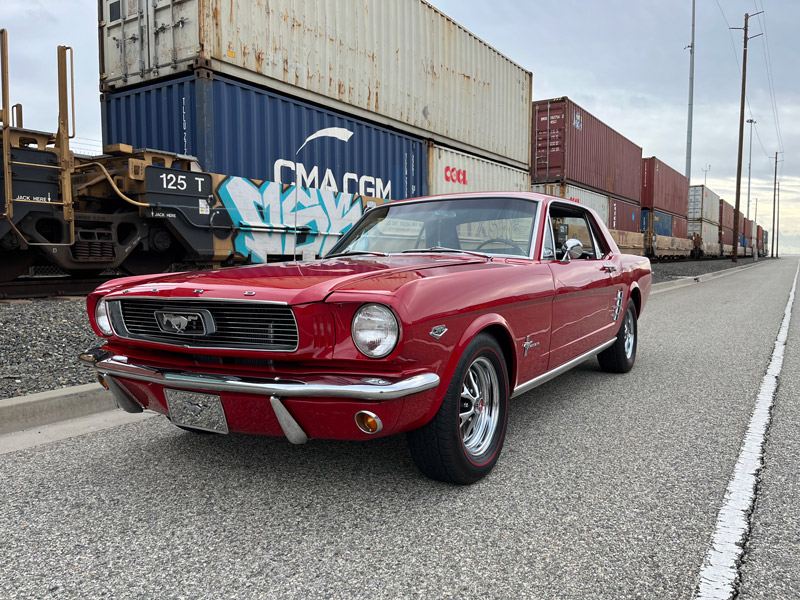
Further complementing the Export Bar is the Monte Carlo bar, a performance innovation inspired by Carroll Shelby. Crafted to eliminate shock tower flex and sustain proper wheel alignment even during aggressive cornering, these braces also prevent shock tower stress cracks.
Suspension Overhaul: Elevating the Ride
Every automotive enthusiast understands a car’s suspension system dictates everything from ride comfort to handling capabilities. Although the early Ford Mustang models are iconic, their original suspension systems, products of 1960s engineering, can greatly benefit from modern updates.
Aldan American, with over 40 years of experience in the aftermarket suspension field, offers coil-over conversion kits for many muscle cars that significantly improve front suspension dynamics. Aldan American’s range includes front coilover kits and rear shocks designed specifically for 1964-1973 Ford Mustang models.
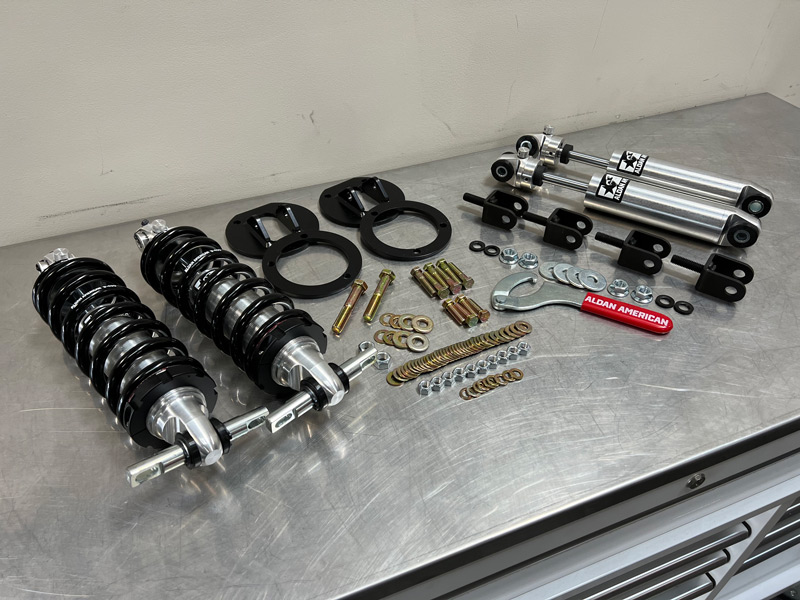
These kits feature Aldan’s single or double-adjustable coilovers up front. Aldan coilovers offer ride height adjustability for the perfect stance and a wide range of coilover tuning capabilities for better cornering and vehicle control. Depending on the selected kit, Aldan American coilovers provide 11-66 shock adjustment points.
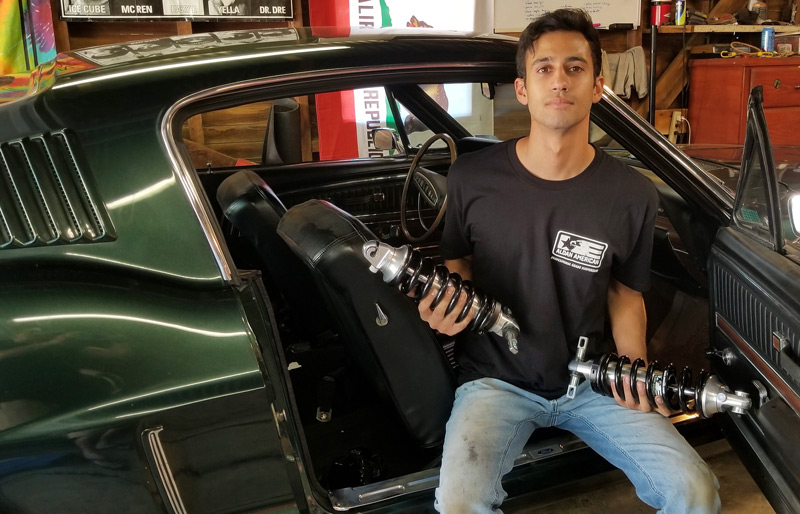
For the rear, Aldan kits include single-adjustable TruLine or double-adjustable TrackLine Series shocks that improve handling and ride quality. TruLine Series shock absorbers feature 11 rebound settings. TrackLine Series shocks offer 66 adjustment combinations with 11 rebound settings and six compression settings for superior handling, traction and overall control.
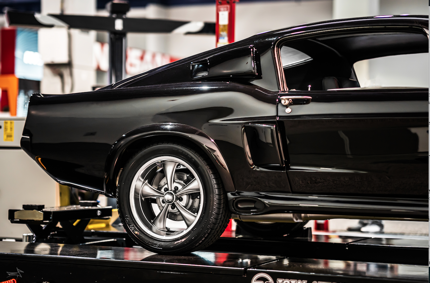
Aldan coilover kits are easy to install, require no cutting or welding and include everything you need to bolt on to your factory or aftermarket control arms. The coilovers are adjustable to lower ride height from 0.0-2.0″ when installed.
A simple upgrade at the rear is to install a pair of Scott Drake High-Performance Leaf Springs for the 1964-1973 Ford Mustang. These springs are direct replacements for the OEM springs, feature a stiffer five-leaf construction and are finished in the OEM color.
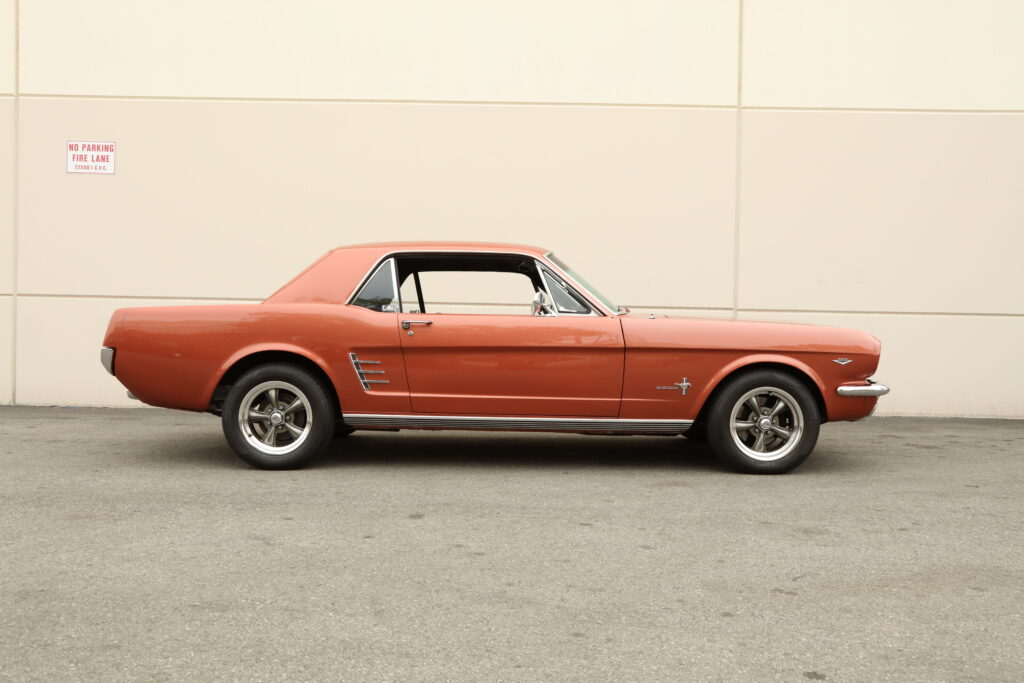
Performance Online offers a 1964-70 Ford Mustang Four-Link Suspension Kit that replaces the traditional leaf spring suspension and ensures precise control over the rear axle’s movement. The two upper and two lower control arms feature adjustability, allowing enthusiasts to fine-tune their rear axle setup.
Here’s a video that covers adding coilover shocks to a 1968 Mustang Fastback with a four-link rear suspension kit installed.
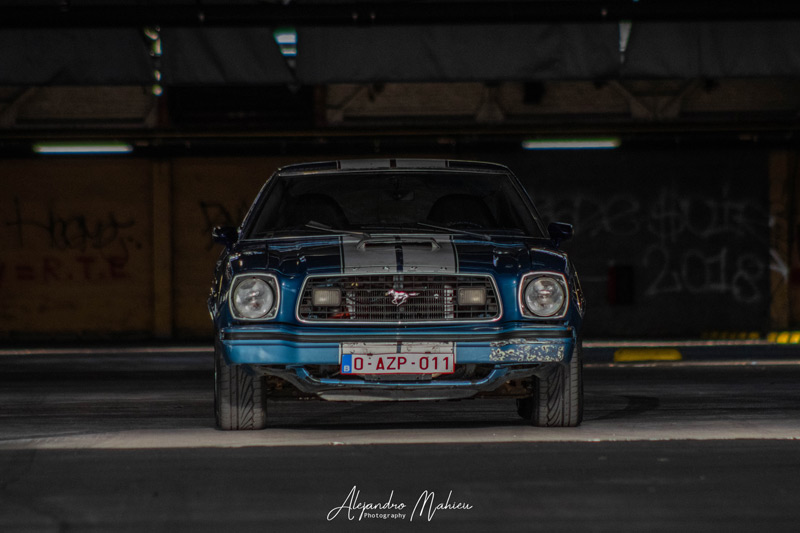
Installing a Mustang II front suspension is a radical step to improving the first-gen Mustang’s handling. A step beyond is an optimized Front Steer IFS conversion from Scotts Hot Rods. In either case, the installation involves removing the old front suspension components, including the shock towers, and welding in new crossmember and suspension mounting points.
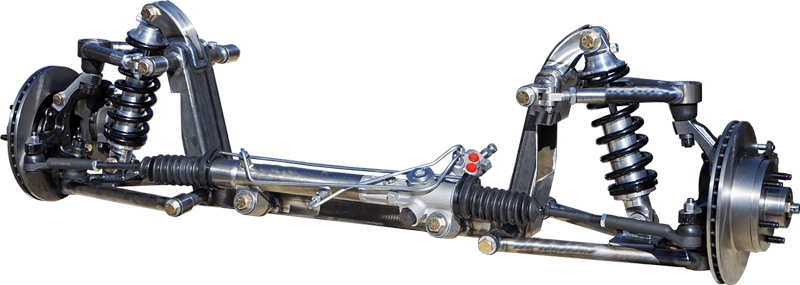
The result is better handling, increased brake options, and the elimination of the shock towers, allowing for more engine swap possibilities. For your front-end conversion, Aldan American offers adjustable Mustang II Front Coilover Shocks that can lower ride height by up to 3.0″.
Shop Ford Mustang Coilover Kits 1964 – 1973:
Cornering Mastery with Sway Bars
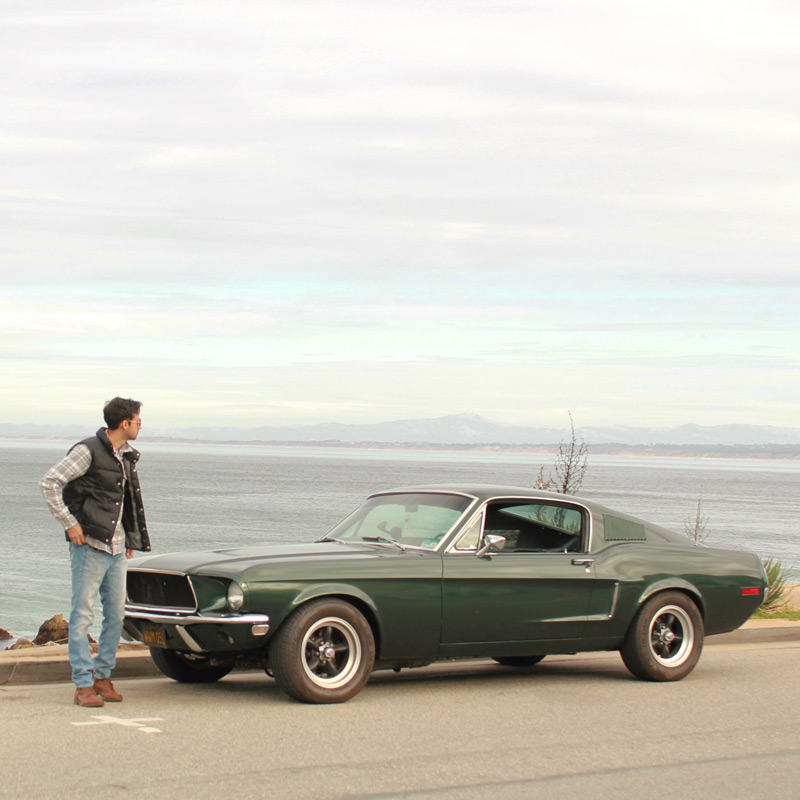
Sway or anti-roll bars are critical to a car’s suspension system as they reduce body roll during cornering. Connecting the left and right wheels through a torsional spring counteracts the tilting force on the car’s body, improving handling stability and reducing lean in turns, spreading the Mustang’s weight more evenly across all four tires.
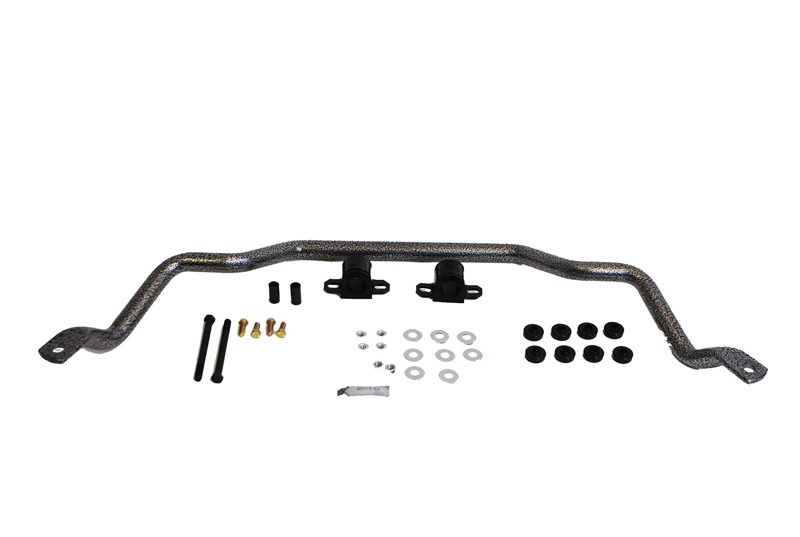
Jeg’s provides a selection of Hellwig sway bars for first-gen Ford Mustang models, improving the car’s cornering ability and overall stability. Their range includes hollow and solid front and adjustable rear sway bars. Adjusting a rear anti-roll bar can alter the balance of a car’s handling by influencing its oversteer and understeer characteristics.
Steering Dynamics: Precision in Control
The steering system acts as the vehicle’s handling core, translating the driver’s inputs into the car’s movements. Moving from the stock steering system to a modern setup can significantly enhance handling precision and driving enjoyment for Mustang owners.
Borgeson offers a simple power steering conversion kit. By replacing manual steering with an integral power steering box, drivers can enjoy better responsiveness and a tighter turn radius while retaining the classic appearance under the hood.

UniSteer Performance offers specialized rack-and-pinion conversion kits for the first-gen Mustang that deliver direct steering feedback and improved responsiveness. UniSteer’s systems also declutter the under-hood area, removing some stock setup’s bulkier components.
While Borgeson provides an excellent solution for those owners who want a notable reduction in steering efforts without a massive overhaul, if you’re prepared to make a comprehensive change, a rack-and-pinion system can be the best choice for overall steering performance.
Brakes: Robust Stopping Power
Regarding performance driving, the importance of reliable brakes cannot be overstated. While acceleration and handling often steal the limelight, the brakes ensure safety and control, especially during high-speed maneuvers or unexpected situations.
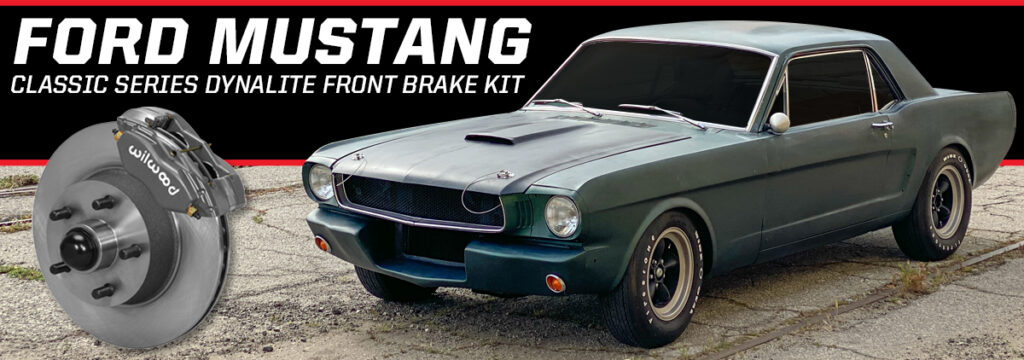
For Mustang owners seeking to upgrade their braking system, Wilwood offers several comprehensive four and six-piston kits tailored for enhanced performance. Wilwood is well-known for its commitment to excellence, and its kits combine improved calipers, vented rotors, and high-grade brake pads.
An often overlooked aspect of the braking system is the brake fluid. Over time, brake fluid can absorb moisture, leading to decreased pedal feel and stopping power. We recommend using a high-quality brake fluid like Wilwood Hi-Temp 570, renowned for its high boiling point and increased resistance to aeration and foaming, which improves pedal feel and consistency in severe use.
Tires and Wheels: Translating Power to Pavement
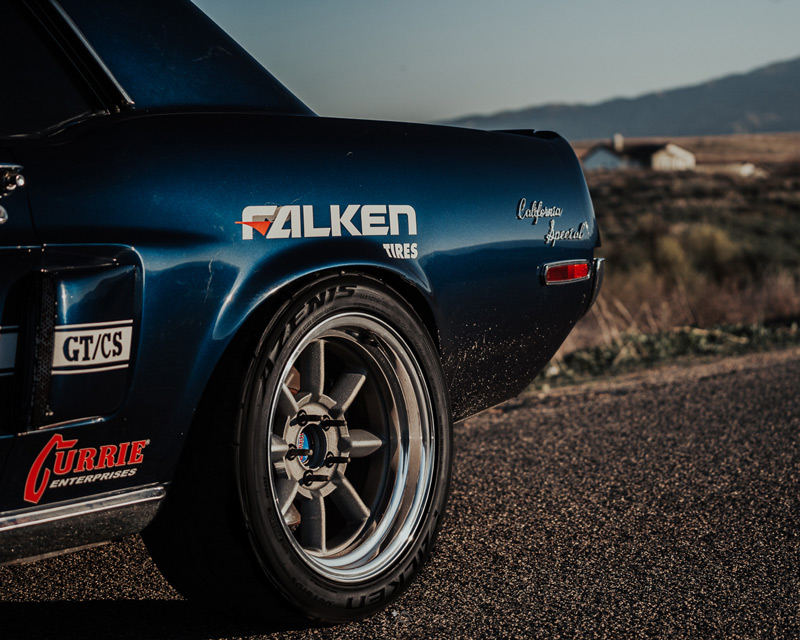
Tires serve as the car’s only connection to the road. Modern performance tires, designed with grip in mind, can be transformative in augmenting the Mustang’s road-holding capabilities. Consider the P225/45R17 Falken Azenis RT615+, Hankook Ventus R-S4, or Yokohama ADVAN Neova AD09 for rubber at home on the street as it is on track. When you pair these tires with high-quality alloys, like the 17 x 8 HRBB Pro Touring Series forged billet aluminum wheels (we prefer the HR99 model with Charcoal Center), the driving experience is vastly improved.
Alignment: Bringing It All Together
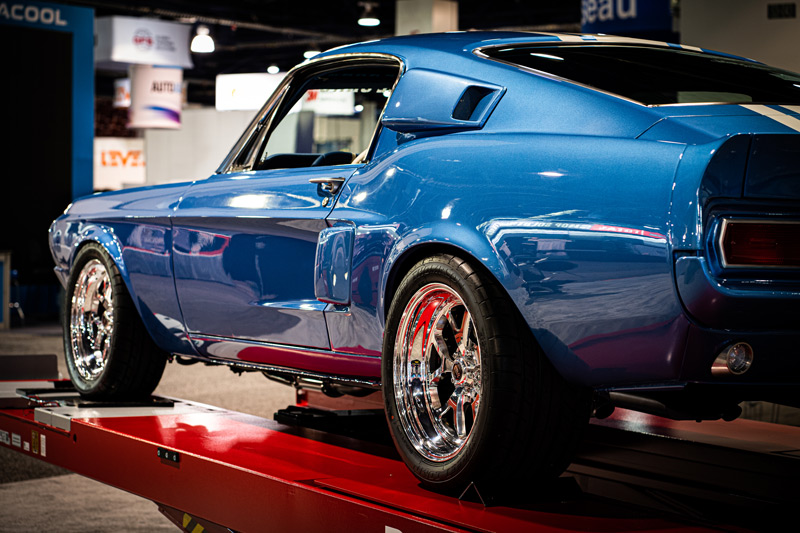
A professional wheel alignment ensures the car’s tires wear evenly and tracks correctly. However, alignment significantly impacts handling, depending on where you drive. A street alignment will differ from a drag race, track day or autocross alignment. It’s advisable to seek expert alignment advice, and it’s critical to communicate all modifications made so that the car is aligned appropriately.
Conclusion
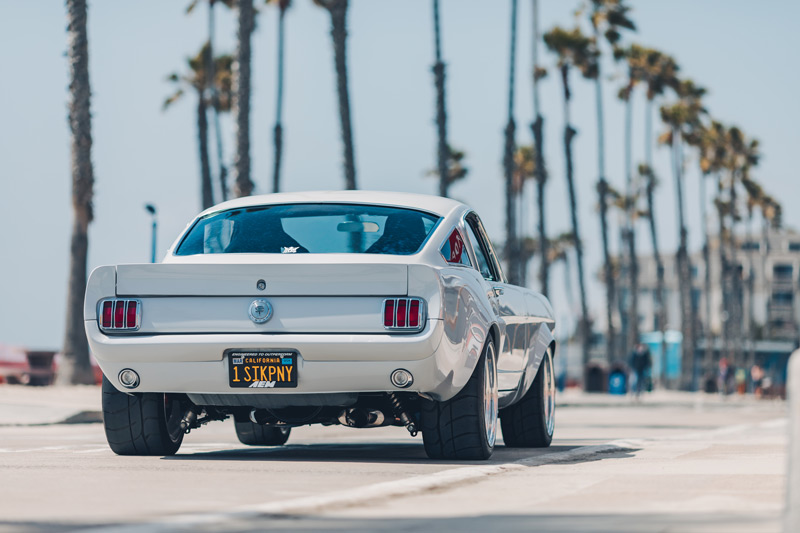
The 1964-1973 Ford Mustang can bridge the gap between its iconic past and present performance advancements by the owner focusing on handling, braking, and steering improvements. This combination offers enthusiasts the appeal of a classic Mustang, supplemented by the safety and precision of contemporary technology.

